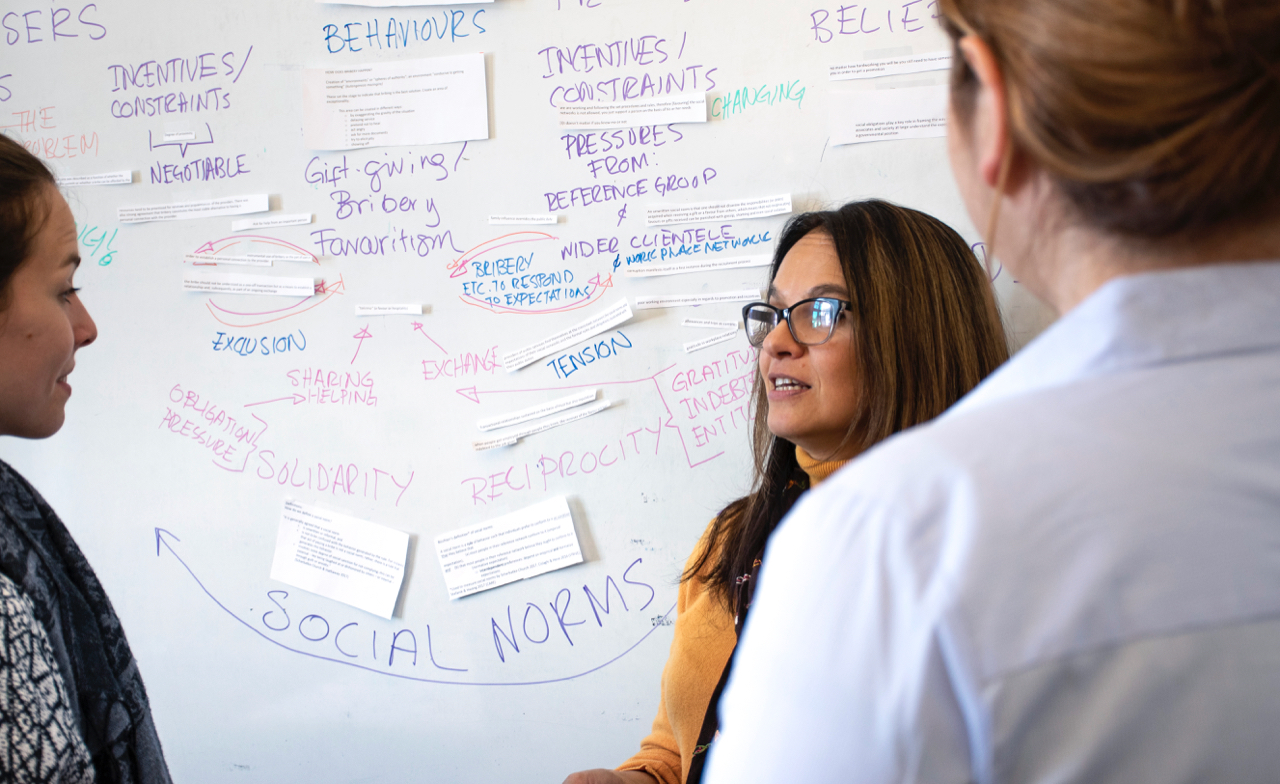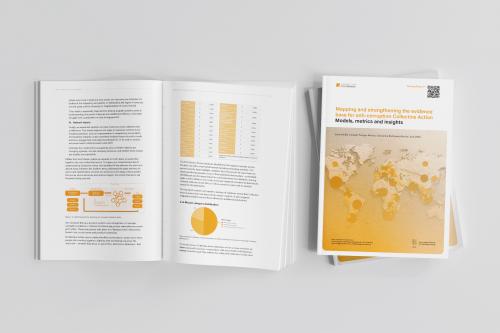Reflections on 2018: Public Governance and research division

The Public Governance division supports the Basel Institute’s wider mission of developing evidence-based approaches to combatting public sector corruption. Our research both contributes to academic debate and translates into practical tools to support anti-corruption reforms.
Throughout 2018, we increased our efforts to share actionable insights from our ongoing research activities with anti-corruption practitioners around the world. We also applied them successfully to many of the Basel Institute’s wider technical assistance activities.
User-friendly informal governance resource
Launched in 2018, our informal governance resource presents the full results of our two-year Informal Governance and Corruption research project. Funded by the Anti-Corruption Evidence Programme of the UK Department for International Development (DFID) and the British Academy, the project explored the role that informal practices play in fuelling corruption in Georgia, Kazakhstan, Kenya, Kyrgyzstan, Rwanda, Tanzania and Uganda.
Short videos and concise summaries make it easy for users to get a quick overview of the project’s main findings and their practical implications, while the 13 research reports offer a deep dive into the countries’ different corruption challenges and how informal practices play into these.
Strategic assistance to anti-corruption initiatives
During 2018, we applied our research findings to develop several political economy assessments related to anti-corruption initiatives in countries receiving development aid. The goal was to highlight local political dynamics and informal drivers of corruption that influence the effectiveness of these initiatives. The evidence-based assessments are helping donors and practitioners to fine-tune their programs to local characteristics and dynamics, and thereby enhance their impact.
This driving goal – to actively support anti-corruption decision-making through evidence and practical insights – plays into our technical assistance and capacity-building support for Malawi’s Anti-Corruption Bureau (ACB). Kicked off in 2018 as part of the Basel Institute’s ongoing implementation of the DFID-funded Tackling Serious and Organised Corruption project in Malawi, our team has worked with local anti-corruption officials to help them translate research findings into concrete actions and processes.
We are also supporting the ACB in their activities aimed at developing a new National Anti-Corruption Strategy, helping to ensure it is inclusive, evidence-based and aligned with the needs and expectations of all Malawians.
Supporting a holistic approach to tackling corruption
Our work in Malawi is one example of our continuously strengthening collaboration with other Basel Institute divisions and partners. Our research shows that the complexity of corruption demands a holistic and integrated approach.
Another rewarding example of this approach in 2018 was our team’s collaboration with the International Centre for Collective Action. We brought our expertise to help organise two international workshops aimed at distilling best practices and lessons learned from anti-corruption Collective Action initiatives with the private sector and extracting actionable insights for the wider community of anti-corruption practitioners.
2018 at a glance
Research
- Completion of Informal Governance and Corruption research project and online resource.
- Political economy assessment of Tanzania for the Swiss Agency for Development Cooperation (SDC).
- Read more about our research.
Technical assistance
- Support to the Tackling Serious and Organised Corruption (TSOC) project in Malawi.
- Support to the SDC’s Decentralisation, Democratisation and Local Governance thematic network as part of an expert consortium led by the Institute of Development Studies, including development of training material and papers on governance and accountability.
Teaching
- Course on Sustainability and Health Governance for Masters students at the University of Basel.
Looking ahead - planned activities in 2019
- Launch and implement a research project on Addressing Bribery and Favouritism in the Tanzanian Health Sector as part of the DFID-funded Global Integrity Anti-Corruption Evidence (GI-ACE) programme.
- Use social network analysis, field research and community engagement to explore the drivers behind illegal wildlife trafficking in East Africa as part of a cross-divisional project funded by PMI Impact.
- Lead Politics and Governance activities as part of the Research Network Africa initiative of the University of Basel’s Centre for African Studies.
- Ongoing training, technical assistance and research projects, including follow-on funding for research on informal governance and corruption from the GI-ACE programme.
This text appears in the Basel Institute's Annual Report 2018.




